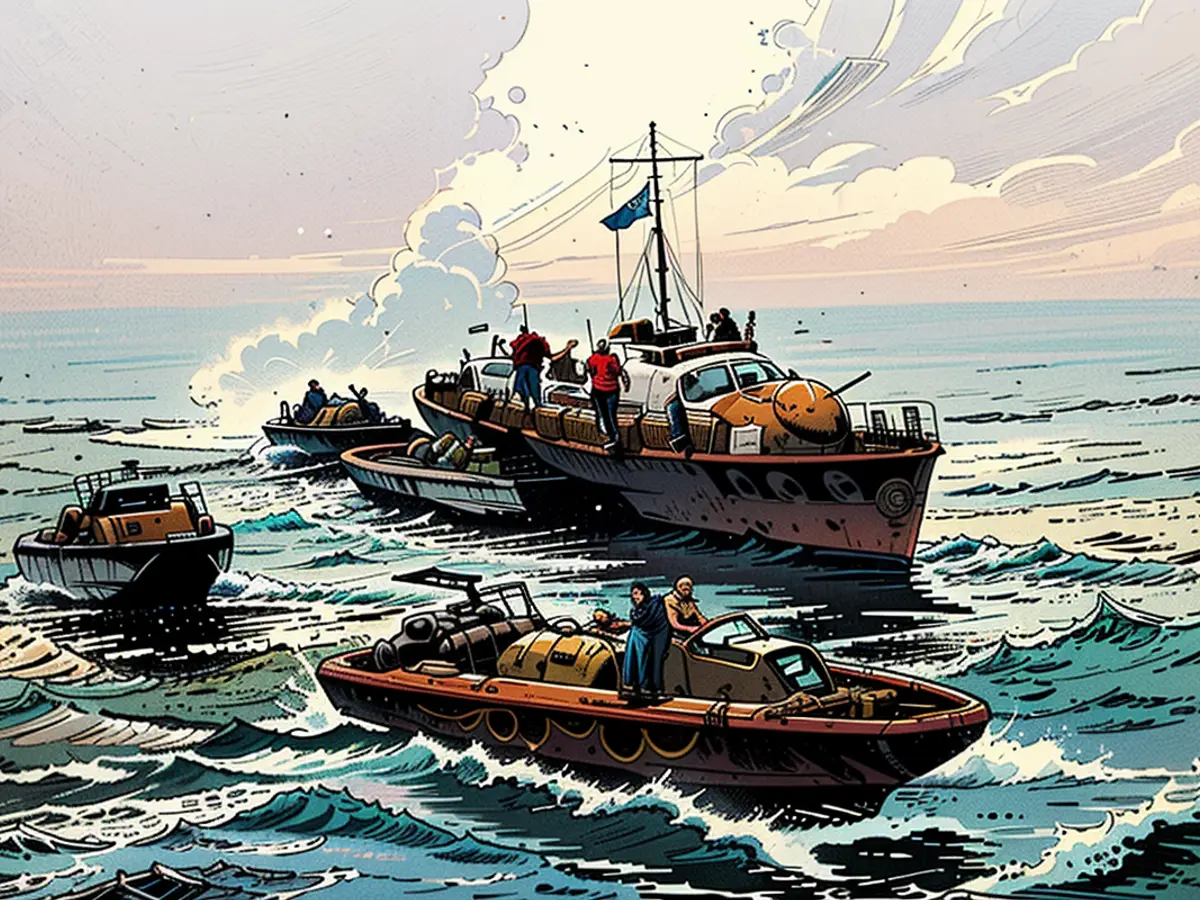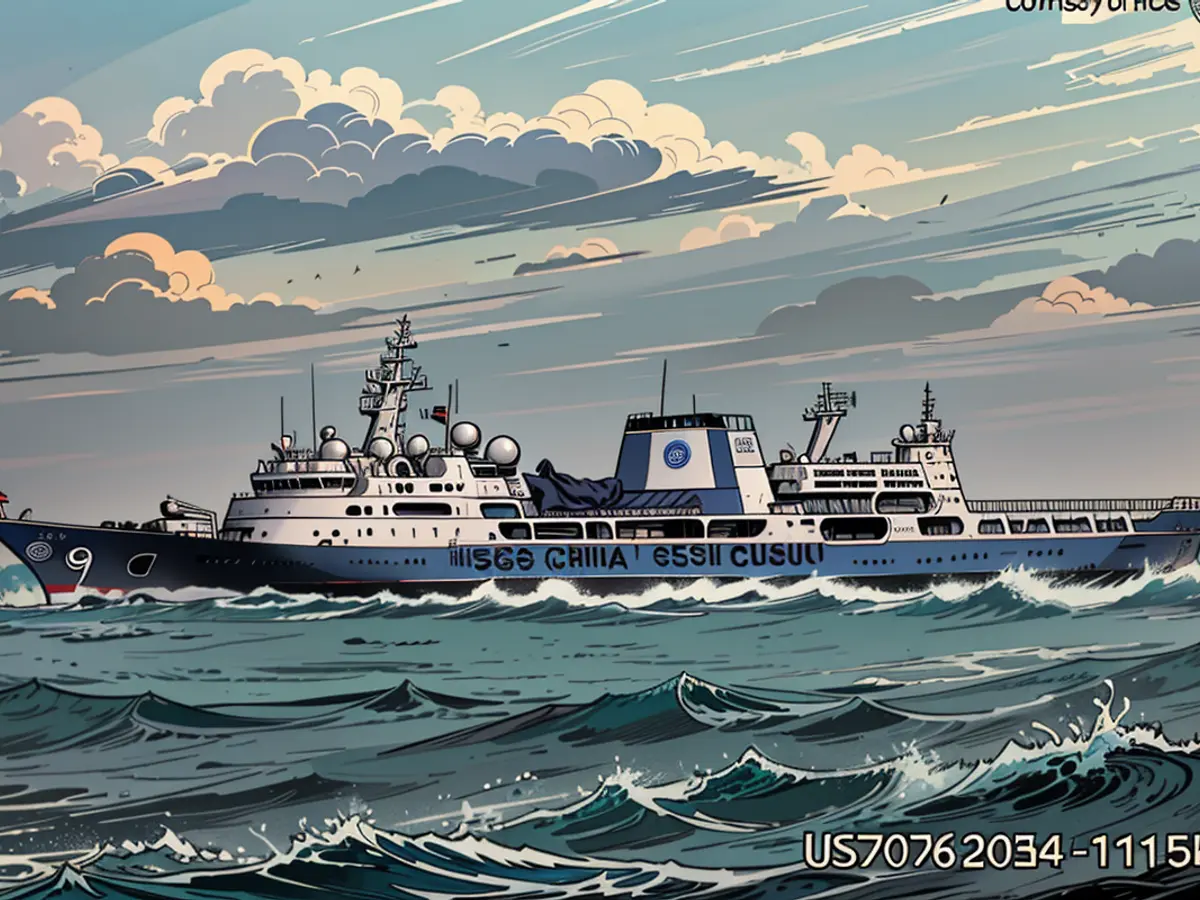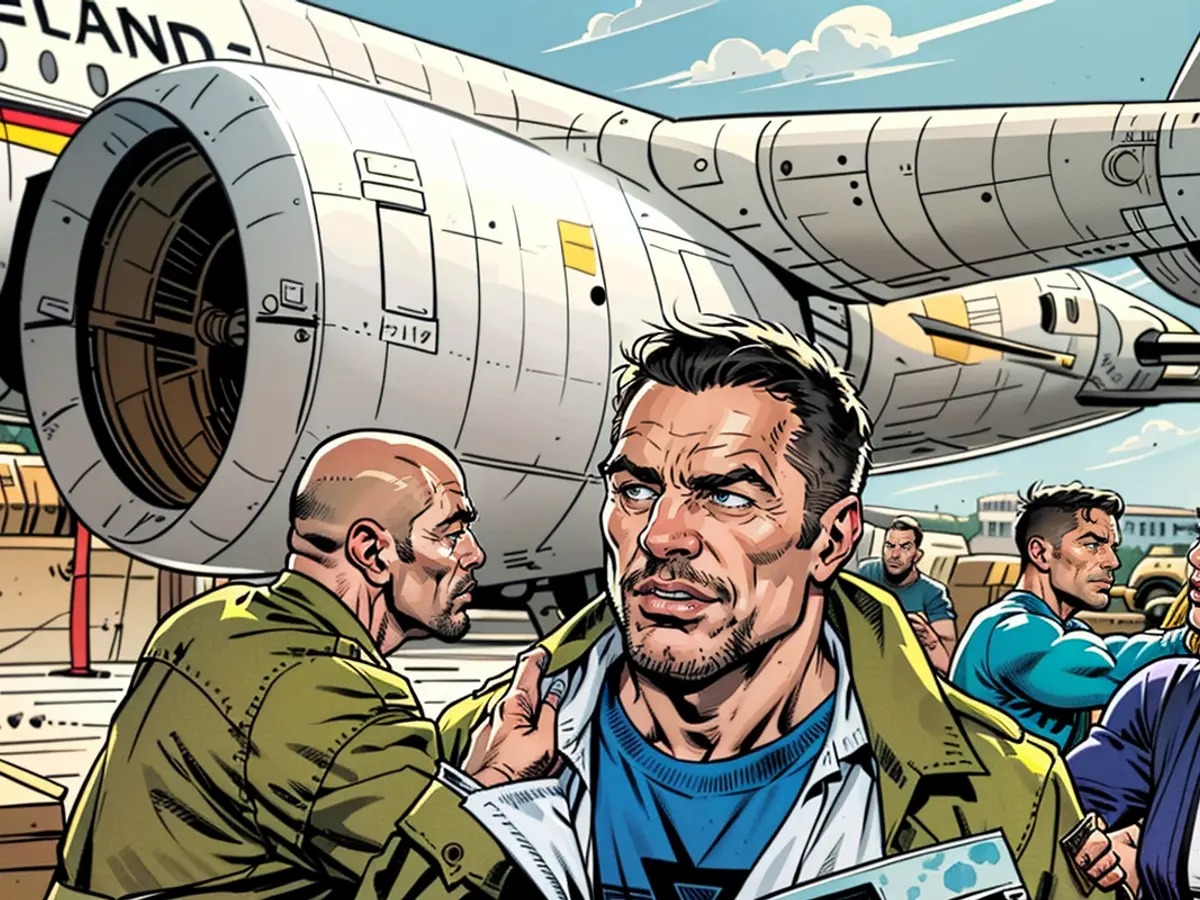Second World War - Dieppe Raid 1942: How the vanity of a royal sent thousands to their deaths
The largest blunder of the British forces during the Second World War was that military leadership positions were given based on social rank, wrote US military personnel in their aftermath analysis. An extreme example is the British attack on the harbor city of Dieppe in 1942. Here, 6000 men were sent on a suicidal mission. And all for the inflated ego of Lord Mountbatten, according to Patrick Bishop in his book "Operation Jubilee". Mountbatten – "Uncle Dickie" – was the uncle of Prince Philip, who in turn was the husband of Queen Elizabeth II of Britain.
Similar to the "Charge of the Light Brigade"
The survivors of the disastrous amphibious operation compared their mission to another suicidal command in the service of Her Majesty. The "Charge of the Light Brigade" in the Crimean War – only 670 men and not 6000 were sent on a suicidal mission.
The attack on the French harbor city had no military sense whatsoever. In 1942, the British had managed to repel the impending invasion of the island, but otherwise they had to dig in. The Germans had driven out the British troops from Norway, France, Greece, and Crete. In North Africa, the German Afrika Corps was on the march, and on the Atlantic, German U-boats were disrupting vital convoys.
A Small Victory for Morale
In 1942, before Stalingrad, it was still conceivable, if not even likely, that the Germans could conquer Russia. If the Soviet Union had collapsed, Hitler could have turned his entire army against Britain. A real invasion would have helped the beleaguered Russians, but the British were not capable of it. After the success of smaller commando raids on the continent, the idea of a larger action emerged. The Dieppe Raid, approximately the size between a commando and a full-grown invasion. But even with a successful outcome, it would have been a meaningless operation. Even if the Britons had taken the harbor, it would have been a propaganda win for Hitler, but it would not have forced him to withdraw troops from the East.
"Even the complete destruction of Dieppe," so Bishop, "would not have contributed to reducing the German ability to wage war." It was, as one of the planners admitted, an attack "for the sake of attacking."
The Egos of the Responsible
The strategic meaninglessness was replaced by a whole list of operational objectives. If the attack on the city had succeeded, they could have destroyed a few ships, radio installations, harbor installations, and more. Just like in any other harbor along the coast. The real motivation lay in the leading personalities, who saw a chance to emerge from a shameful inactivity. Mountbatten wanted "to demonstrate an attack spirit to the Germans, to the British public, to the Americans, and to the Soviets, and to give new luster to the reputation of the Combined Operations Headquarters," according to Bishop. The Royal Air Force wanted to defeat the Luftwaffe, and the Canadian commanders were eager to see their men in action.
The raid on Dieppe was postponed due to a storm at the beginning of July 1942. But it still took place a few weeks later. Above all, Lord Mountbatten wanted to implement the project. "It was the triumph of vanity, obstinacy, and ambition that always provided the dark counterpoint to his great abilities and his great humanity," writes Bishop.
## Disasterous Attack with No Chance
The attack ended in a disaster that did not go beyond scattered successes. Despite the long planning and resistance in France, the attacking troops had no useful information about the German defense. Contrary to previous command raids, they did not encounter an enemy who had not expected an attack.
Above all, it was not possible to neutralize the German fire positions beforehand. The harbor was defended with machine guns and artillery, which covered all approaches. The storming Canadians found themselves in exactly the sections that the Germans had anticipated. They encountered a "nearly perfect system of interlocking fire arcs, which together produced a whirlpool of bullets and grenades, designed to cause any frontal attack on the city to fail, unless it was preceded by a devastating bombardment."
No Breach in the German Defense System
The plan called for landing on both sides of the harbor. There, the artillery batteries were to be silenced, and the city was to be stormed in a surprise attack. The first attack was delayed, and the troops landed in full view. There was no longer any surprise, and the Germans opened fire on them.
"I jumped into the water, which reached up to my chest," Tom Hunter, a soldier in the first wave, recounted later. "I had no time to look around and I just wanted to get there as quickly as possible." He pressed his head against the stones. "There was nothing we could do. I didn't even have the chance to shoot back." The group that Ross Munro, a Canadian journalist, was with came under heavy MG fire as they tried to storm the beach. In 15 minutes, the brave troop was reduced to a pile of wounded and dead men, who desperately searched for cover.
"We had to stay close to the wall," Sergeant John Legate said some days later. "The crossfire that came at us made it impossible to move even a meter away from the wall, or we would have been hit." No one could retrieve the wounded. In addition to the MG fire, there were also the impacts of mortars. The wall offered no protection against the steep-angle fire weapons either. Photos of the Germans show the piles of bodies at the spots where the wall was damaged and where the Canadians sought shelter.
Survivors Were Left Behind
Few people from the first wave managed to get through the dense barbed wire barriers. In the first phase of the attack, it was already clear that the storming infantry could not breach the fire trench of the fortified position. Nevertheless, the Canadian commander ordered two senseless follow-up attacks. The troops were stuck on the beach. "Everywhere there were snipers," Jack Poolton, a private, said later. "One hit my helmet rim. Guys who tried to throw hand grenades were hit as soon as they removed the pin."
On that day, the Royal Airforce's bombs hit their own people as well. The incoming tide dragged the severely wounded to the shore, where they drowned. "It was incredible," Poolton remarked. "There were boots with feet in them, there were legs. And flesh pieces. And heads. That was my regiment. Those were the boys, with whom I had lived for the last two and a half years."
Only one operation was successful. The 4th Commandos managed to completely destroy a heavy artillery battery west of Dieppe. At 9 am, the operation was called off. By noon, the fleet had withdrawn from the coast, leaving the stragglers to surrender. Of the 6000 men, 2010 were taken prisoner and almost 1000 were killed. A loss rate of over 50% within just ten hours.
No Consequences for the Commanders
The disaster had no consequences for the commanders. They later claimed that the attack on Dieppe was a rehearsal for the invasion in Normandy. In reality, the motivation of "Testing the big invasion" before the defeat played no role. With the negative outcome, they had not calculated. The successful attack was the objective in itself. Only the disaster required an explanation. How far-fetched it was, Generalmajor Percy Hobart stated in a letter to military historian Basil Liddell Hart. If one wanted to train one's own troops in practice, he wrote, one would never choose a strongly defended sector like Dieppe.
At the end of the 1950s, Mountbatten completed his own heroic legend. In his report, he concluded that Dieppe, despite the terrible losses, had been an important training ground. It was here that the Allies learned the lessons that helped them escape with much less loss than expected during D-Day. The carnage was regrettable, but ultimately it had paid off. That was a lie, as Bishop pointed out. A lie that Mountbatten likely told himself for the rest of his life.
Patrick Bishop - Operation Jubilee
Note: A single reader believed that the article stated that Elizabeth II had already been queen in 1943. That is not the case. She was crowned in 1953 and married in 1947.
Also read:
Hitler's Flyers could have won the air war over England – says mathematics
How a British woman eliminated German fighter planes with her invention
Falklands War - How the pride of the British Fleet was sunk by a waitress
The survivors of the Dieppe Raid saw their mission as a modern-day version of the "Charge of the Light Brigade", both being suicidal operations in the service of Her Majesty. The attack on Dieppe, despite its military futility, could have been a propaganda win for Hitler if the British had successfully taken the harbor.
Despite the large number of deaths and the lack of strategic significance, the commanders involved in the Dieppe Raid saw no consequences for their actions. They later claimed that the operation was a rehearsal for the invasion in Normandy, a justification that was debunked by historian Patrick Bishop in his book "Operation Jubilee".








